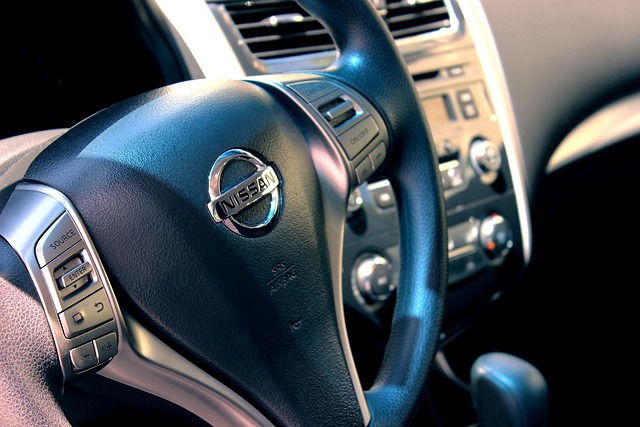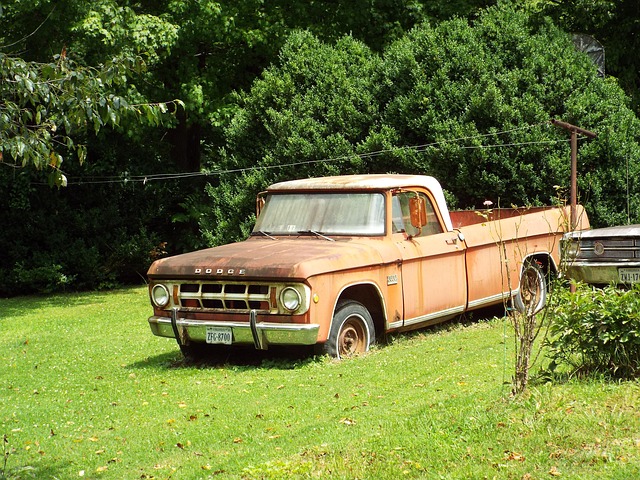Looking to register your car in California? This comprehensive guide walks you through every step, from understanding the process to post-registration tasks. We cover key aspects like gathering essential documents for a successful VIN (Vehicle Identification Number) verification and navigating the DMV submission process. By following these steps, you’ll ensure a smooth registration experience. Remember, accurate VIN verification is crucial, so be prepared with all necessary documentation.
- Understanding the California Car Registration Process
- Gathering Necessary Documents for VIN Verification
- Performing a Vehicle Identification Number (VIN) Check
- Submitting Applications and Fees to the DMV
- Post-Registration Considerations and Keeping Your Records Updated
Understanding the California Car Registration Process

In California, car registration is a crucial process that involves several steps to ensure legal and safe operation of vehicles within the state. Understanding the California car registration process begins with recognizing the key components required. First, you’ll need to obtain a Vehicle Identification Number (VIN) verification from an authorized source, often involving a vin inspection or using a mobile vin verifier. This unique identifier is crucial for tracking vehicle history and ensuring compliance with state regulations.
Once your VIN has been verified, you can proceed with gathering necessary documents, including proof of ownership, insurance, and identification. These documents are then submitted to the California Department of Motor Vehicles (DMV), either in-person or through their online portal. The DMV will review your application, perform a vin verification to match the details against state records, and issue a registration certificate if all requirements are met.
Gathering Necessary Documents for VIN Verification

Before you begin the registration process in California, it’s crucial to gather all the essential documents for VIN (Vehicle Identification Number) verification. This step is a critical part of ensuring your vehicle’s history and authenticity are accurately recorded. You’ll need to provide proof of ownership, which can be a title or a bill of sale. Additionally, a current registration from another state or a valid insurance card may be required.
For a smoother process, consider utilizing mobile VIN inspection services that offer convenient solutions for busy individuals. Mobile vin verifiers can quickly and accurately check your vehicle’s history by accessing numerous databases, including those for salvage titles and odometer rollbacks. This ensures you have all the necessary documents in order when visiting a California Department of Motor Vehicles (DMV) office for registration.
Performing a Vehicle Identification Number (VIN) Check

Before registering your car in California, performing a Vehicle Identification Number (VIN) check is a crucial step. This involves verifying the VIN using official databases to ensure the vehicle’s history and authenticity. A mobile vin inspection service can be particularly useful here, allowing you to get this critical information quickly and conveniently. By comparing the provided VIN with records from various sources, including state databases, you can confirm if there are any outstanding issues, accidents, or odometer rollbacks associated with the vehicle.
A vin inspection is a straightforward process that often involves scanning the VIN barcode using specialized software. This technology ensures accurate and instant results, providing peace of mind as you proceed with the registration. If discrepancies are found during this verification process, it’s essential to address them before completing the registration to avoid potential future issues or delays. Consider utilizing a mobile vin verifier for a swift and reliable solution during your car registration journey in California.
Submitting Applications and Fees to the DMV

To register your car in California, you’ll need to submit several applications and fees to the Department of Motor Vehicles (DMV). The process begins with gathering essential documents, including proof of ownership, insurance, and identification. Once you have these prepared, you can either visit a DMV field office or utilize their online services for a more convenient experience.
When it comes to verifying the Vehicle Identification Number (VIN), ensure that your car passes the VIN verification process. You can do this through a mobile vin inspection or by using a trusted vin verifier. This step is crucial as it helps ensure the vehicle’s history and ensures you’re providing accurate information when registering. Remember, an intact and accurate record is essential for a smooth registration experience in California.
Post-Registration Considerations and Keeping Your Records Updated

After successfully registering your vehicle in California, there are several post-registration considerations to keep in mind. One crucial aspect is maintaining accurate and up-to-date records, which includes keeping track of important documents like insurance policies, maintenance receipts, and any modifications made to the vehicle. Regularly updating these records ensures compliance with state regulations and simplifies future transactions or claims.
Additionally, consider utilizing mobile vin inspection services for convenience and peace of mind. A mobile vin verifier can quickly and accurately verify your vehicle’s history, including its previous owners, accident reports, and outstanding recalls. This service is especially beneficial when buying or selling a car, as it provides transparency and helps prevent potential issues related to fraud or hidden damage.
Registering a car in California involves several steps, from understanding the process to providing accurate documentation and passing a VIN verification. By gathering all necessary documents and ensuring your vehicle meets state standards, you can streamline the registration process at the DMV. Regularly updating your records and staying informed about any changes in regulations is essential for maintaining compliance. Remember, a successful car registration starts with meticulous preparation and adherence to California’s requirements, ensuring a smooth and efficient experience.



